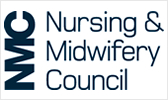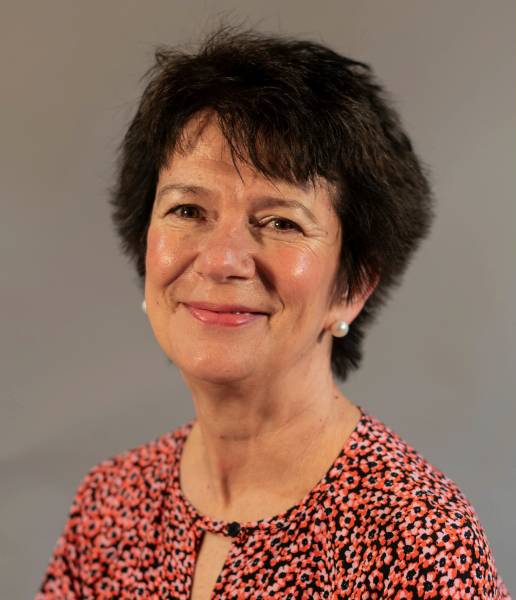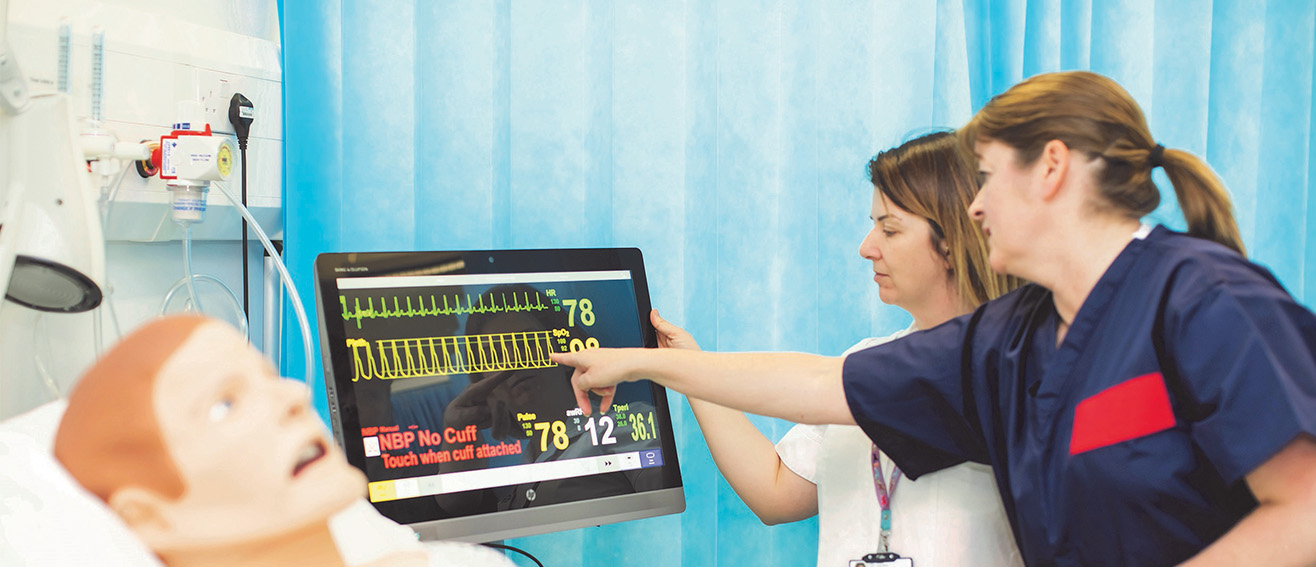Only Social Work applicants need to pay for their DBS. It costs £46 and can be purchased on our online store.
Overview
Exceptionally rewarding
Adult nurses help care for people over 18 who are ill, injured, or have physical disabilities. They monitor patients' progress and, in conjunction with doctors and other members of the health care team, decide what care to give, as well as advising and supporting patients and their relatives. Although demanding and intense work, it can be exceptionally rewarding.
Our innovative two-year course will prepare you for a career in a wide range of rewarding adult nursing opportunities, including in general medical and surgical wards, as well as specialist units such as Accident and Emergency or intensive care. Many of our graduates take their first posts as qualified practitioners in the NHS Trusts and hospitals in which they gained experience.
Top-up to MSc
After graduating, you'll be able to gain a Masters degree by completing a dissertation. Students who successfully complete the PgDip course have up to four years to complete the dissertation module via part-time study. This will incur an additional cost.
Why Nursing at LSBU?
- check-circle
- Professional accreditation: our courses are approved by the Nursing and Midwifery Council.
- heart
- LSBU Nursing & Midwifery graduates are the highest paid amongst all London Modern university graduates, and fifth highest in the UK one year after graduating (DfE LEO data 2022).
- medkit
- Our PG Dip nursing course is designed to ensure that student develop well-rounded nursing knowledge, skills and attitude to represent a highly valued profession.
- heartbeat
- Dedicated facilities: We have two adult nursing skills laboratories at our Southwark campus and three at our Havering campus.
- star
- Ranked 2nd amongst London competitors for Graduate Prospects in Nursing (Complete University Guide 2023)
- user-md
- Students on this course could be eligible to receive a non-repayable amount of up to £11,000 per academic year with the NHS Learning Support Fund.
| ModePgDip Full-time | Duration2 years | Start dateSeptember | Application codeB741 | Application method UCAS |
| ModeMSc Full-time | Duration2 years | Start dateSeptember | Application codeB745 | Application method UCAS |
Location
London South Bank University student union is located at 103 Borough Rd, London SE1 0AA.
If you are visiting our Southwark Campus, you may wish to use our downloadable campus map (PNG File 466 KB). For information on accessibility, see our DisabledGo access guides. See our location page for more details.
Entry Level Requirements
Applicants will be considered on an individual basis but will normally require:
- A Bachelor degree with a minimum 2:2 classification. Candidates without a health or science related degree are required to complete a Life Sciences work book package to satisfy the Life Sciences element of the APL portfolio.
- Please make sure you have the required GCSE qualifications (or equivalent Level 2 qualifications) before applying for this course.
- Maths and English GCSEs/equivalent (at C or above) to meet the Nursing and Midwifery Council (NMC) selection criterion.
Choose your country
Select country here:
Missing English and Maths qualifications?
If you do not have the required English and Maths qualifications needed to satisfy the entry requirements for this programme, we have courses available at our partner College that you can take to upskill in these areas. Find out more at South Bank College.
United Kingdom
£9250
Tuition fees for home students
International
£
Tuition fees for international students
Tuition fees are subject to annual inflationary increases. Find out more about tuition fees for Undergraduate or Postgraduate courses.
-
Full-time
full-time
PGDip Adult Nursing (FT) - Year 1
UK fee: £9250 International fee: £ AOS/LSBU code: 5446 Session code: 1FS00 MSc Adult Nursing (FT) - Year 1
UK fee: £9250 International fee: £ AOS/LSBU code: 5562 Session code: 1FS00 PGDip Adult Nursing (FT) - Year 2
UK fee: £9250 International fee: £ AOS/LSBU code: 5446 Session code: 2FS00 MSc Adult Nursing (FT) - Year 2
UK fee: £9250 International fee: £ AOS/LSBU code: 5562 Session code: 2FS00
Please note that this course is not currently open to international students.
Possible fee changes
The University reserves the right to increase its fees in line with changes to legislation, regulation and any governmental guidance or decisions.
The fees for international students are reviewed annually and, additionally, the University reserves the right to increase tuition fees in line with the RPIX measure of inflation up to 4 per cent.
Scholarships
We offer several types of fee reduction through our scholarships and bursaries. Find the full list and other useful information on funding your studies on the scholarships and fee discounts page.
Fee status
Please check your fee status and whether you are considered a home, EU or international student for fee-paying purposes by reading the UKCISA regulations.
Funding for pre-registration postgraduate programmes
Since August 2018 new postgraduate pre-registration nursing, midwifery and allied health professional students have been able to access loans from the Student Loans Company. Accessing loans provides at least 25% more up-front living cost support whilst you study. You will also have access to the Learning Support Fund, which is administered by the NHS Business Services Authority, for support while attending clinical placements.
Background to these changes can be found on Gov.uk.
Council of Deans have prepared a briefing paper and Student Finance have outlined who qualifies. The Funding Clinic provides further information on what support is available.
NHS Bursary will produce guidelines and information once the information has received parliamentary approval.
Home
| Mode PgDip Full-time | Duration 2 years | Start date September | Application code B741 | Application method UCAS |
| Mode MSc Full-time | Duration 2 years | Start date September | Application code B745 | Application method UCAS |
How to apply for the PgDip
Although this is a postgraduate course, all students apply to the Universities and Colleges Admissions Service (UCAS). Full details of how to do this are supplied on our How to apply webpage for undergraduate students.
When making your UCAS application you will need to apply for your chosen field of nursing practice.
Attributes and values
Nursing is a very competitive career and it is important you make a high quality application to us. Here are some tips on what attributes, skills and values we are ideally looking for in an LSBU nursing student:
- Meet the required entry requirements for LSBU nursing courses
- Good understanding of basic numeracy and literacy skills
- Impeccable communication, caring and helping skills
- Able to work as part of a team as well as independently
- Reliable, patient and understanding
- Motivated
- Dedicated to a career in nursing and fully comprehend the responsibilities of the role
- Personal qualities and values in line with those expected by the NHS constitution.
Accreditation of Prior Learning (APL)
All applicants are required to make an APL claim. You may apply for APL through both certificated learning and the production of a portfolio to demonstrate achievement of programme outcomes for the programme you have applied for through experience. If you are offered a place on the course you'll be provided with guidance notes to assist you in constructing this.
Interviews and assessments
As part of the selection process you'll be expected to attend an MMI interview. Find out more.
If offered a place, you must successfully complete both a Disclosure Barring Service (DBS) and occupational health check, and provide proof of ordinary residency requirements and satisfactory references. A valid passport is required for enrolment purposes.
English language
For those whom English is not their first language must achieve a minimum score of 7.0 overall or equivalent with not less than 7.0 in the listening and reading sections and not less than 7.0 in the writing and speaking sections for the International English Language Test Score (IELTS) at the time of application.
Prepare to start
Disclosure Barring Service (DBS)
All pre-registration students need to be DBS cleared before going on placement. You’ll need to have an enhanced DBS check even if you have had one before and will not be able to go on placement until this is complete.
The DBS process is not difficult but can take some time so it's best to get started as soon as you receive your email. You will receive the email during Summer 2023.
DBS update service
If you're part of the DBS update service, your subscription is up to date and you already have a DBS certificate, please bring in your original green DBS certificate for the document check. To take advantage of the update service, your certificate needs to be classified as 'Enhanced' and workforce must be listed as 'Adult and Child'. If you have any queries, please email us at hscdbsoh@lsbu.ac.uk.
How to complete your DBS
Our DBS supplier, Verifile, will send you an email with all the details you need to complete your DBS.
Verifile will give you instructions to log into their system and complete your personal details and information. To complete the process, you'll need your passport or driving licence and 5-year address history including dates when you moved in/out.
You can use your application number to track the progress of your DBS.
When you've finished, your Disclosure Statement will be mailed to the most recent address in your submission, so please make sure it's correct. We don't automatically receive a copy of this Statement, which is why we need you to bring it in as part of the next step.
Frequently asked questions
What do I need to declare on my DBS?
Please include any and all major and minor, spent and unspent convictions, cautions, warning and reprimands, even if they relate to juvenile offences or seem trivial or unimportant. Some minor offences will not prevent you from going on placement or being offered a place on your course, but still need to be reviewed so it’s best to be honest and include everything. Also, the more information you include about any offences can help reduce the time it takes to assess them.
I’ve applied for/had a DBS in past. Do I need to do it again?
Yes, you do. You need to have an up-to-date DBS. Once you have received the email from our DBS supplier make sure you start the process straight away. All details of how to do this will be outlined in the email. If you don’t complete your DBS in the timeframe given, we may withdraw your offer even if term has already started. So it’s important that you get started as soon as you receive the email.
Why do I need an enhanced DBS check?
Government legislation requires all Higher Education Institutions who offer courses where students may come into unsupervised contact with children or vulnerable adults to have this check. These checks also help us to ensure duty of care to our students, and create a safer environment for patients seen by our students.
Who reviews my DBS?
As part of the University’s admissions process, declarations of any offence may be referred to a virtual panel made up of senior managers from partner NHS Trusts and/or other sectors within Health and Social Care. Any DBS that is considered by the panel will be anonymised. The panel members then deliberate and make a recommendation whether the application be rejected, accepted or request further information or documents.
When will I hear back from the panel about my DBS?
If you have declared an offence, we might ask for more information from you in writing which will help the panel make a decision. Once your declaration has been referred to the panel it can take up to 28 working days to be processed.
Which address do I use?
You need to put your current address on your DBS application because this is where your Statement will be mailed. If you’ve moved house between submitting and receiving your DBS, make sure you have mail forwarding set up so that you’ll receive your statement. If you’ve moved recently, make sure you have proof of your new address (such as a new bank statement) to bring for your document checks.
I’ve lost my statement. What do I do?
If you’ve lost your statement you will need to pay £46 to purchase a new one.
I’ve had my application rejected due to my DBS declaration/disclosure. Can I appeal the decision?
Yes. If your application has been rejected due to your DSB declaration/discloser, you will be sent a letter to confirm this. There will be instructions in the letter about how you can appeal and which supporting information you need to provide. Once a decision has been made you will receive a letter from the School Executive Team.
Document check
Once you have completed the online part of the DBS process, you will need to produce three accepted documents from this list to be verified.
Document check on campus
Southwark: Southwark Student Help Desk in the K2 building Monday – Friday between 9am-11am or 1pm-4pm
Havering: come to reception at Havering Monday – Friday between 8:30-10:30am, 12-2pm, 4-5pm
Document check at the Post Office
If you’re not able to come to campus, you can get your documents checked and certified at the Post Office for a fee of £10.50. To do this, make photocopies of your three accepted ID documents and take your DBS form, copies and originals of your documents to the Post Office. The Post Office will stamp the form and photocopies and given them back to you. Email your post office receipt, stamped form and stamped documents to hscdbsoh@lsbu.ac.uk.
Occupational Health (OH)
An exciting part of many of our Health and Social Care courses is the opportunity to learn off-campus and work with patients, clients and/or service users. Before you start, we need to make sure that you have the correct levels of immunisations.
Questionnaire
GP appointment
The second part of your occupational health check is to get any inoculations that you may need from your GP. When attending your GP appointment, please take printed copies of these two documents with you.
Vaccination Screening Advisory Letter
GP Vaccination and Screening History
Occupational Health appointment
After these steps are complete you will receive an email from OHWorks Ltd inviting you to attend an appointment on-campus with an Occupational Health Nurse. These appointments take place during the week and sometimes when your classes have already started.
The OH team have prepared this guide which outlines what to expect at each stage. If you have queries or concerns about your Occupational Health clearance or inoculations please contact the Occupational Health team.
Frequently asked questions
Do I need to be double vaccinated?
Yes - government legislation advises that everyone must be double vaccinated to work in a health care setting with effect from 1 April 2022.
My local GP doesn’t have my vaccination history. What should I do?
Contact the OH team at lsbu@ohworks.co.uk who will be able to advise you.
What if I can’t make my OH appointment?
Please contact the OH team to reschedule at least 48 hours in advance. Remember that you won’t be able to go on placement until you’re cleared.
I’ve already registered with LSBU’s Disability and Dyslexia Support Unit (DDS). Do I still need to tell the OH Nurse about my condition?
Yes. Tell the OH Nurse about all conditions including specific learning difficulties even if you’ve declared these in the past. This will allow us to make reasonable adjustments whilst you’re on placement.
If I’ve declared a condition to the OH Nurse, do I need to register with LSBU’s Disability and Dyslexia Support Unit as well?
The information you share with the OH Nurse will be treated with confidence, meaning that it won’t be automatically shared with the DDS team. The DDS team can help you to receive support for your lectures, assignments and exams so it’s worth to register with them and provide evidence of your condition if you need this support.
Holidays
Your holiday periods will not follow the normal University timetable because of placements. You’ll receive more details once you start your course.
Practice placements
Most health and social care courses’ practice placements will operate outside normal working hours e.g. evenings, nights, weekends and bank holidays.
Uniforms
Most placements and some practical sessions in our skills laboratories will require you to wear a uniform and name badge. You will be measured for uniforms specific to your course as part of your Welcome Week activities after enrolment. In the meantime, we have prepared answers to frequently asked questions that you might find useful.
Frequently asked questions
Do I get a uniform for when I go on placement?
Yes, LSBU will supply you with uniforms for your placement with the exception of Social Work and Health and Social Care BSc students who are not required to wear uniforms for their placements.
Which uniforms will I receive?
Nursing and midwifery students will receive two pairs of trousers, three tunics and a name badge. Polo shirts will be issued instead of tunics for students studying mental health nursing, physiotherapy, chiropractic and sport rehabilitation. ODP students will receive one set of scrubs top and trousers.
How long do the uniforms need to last?
The items are to last for the duration of your programme of study.
How do I know what size I am?
A measuring and distribution service will be available by the uniform provider at both Southwark and Havering campuses. As garments are fitted for work purposes they need to allow for flexibility of movement so it’s best to have the uniform provider measure you up.
Am I able to request a longer tunic?
You can request a longer tunic for religious or medical reasons. To do this, you should advise the uniform supplier at the measuring session. These tunics are 2 inches longer and sleeves finish just above the elbows. Due to infection control, full length sleeves are not permitted.
Can I use a preferred name or a nickname on my name badge?
Name badges are professional and need to include your formal names.
What do I do if I lose or damage my name badge?
You can order a replacement name badge direct with the uniform provider. Badges need to be worn at all times when you are at placement.
Can I order more uniforms?
You are welcome to purchase additional items at Work in Style. You will need to log in using your student ID and then follow the step-by-step instruction. Please note that dresses are not available.
Can I try on my uniforms?
You should try on your uniforms the day you receive them so that the staff at the measuring service can help arrange any size exchanges. If you choose not to try on your uniforms and require different sizes at a later date you will need to purchase these through the uniform provider’s online portal at your own cost.
What do I do with my uniform after I complete my studies?
They are yours to keep – you do not need to return the garments.
Enrolment and Welcome Week
Before you start your course we’ll send you information on what you’ll need to do before you arrive and during your first few days on campus. You can read about the process on our new students pages.
Some compulsory skills sessions may take place in the evening.
You will be taught separately from the traditional three-year undergraduate students and will study the following:
Year 1
- Assessing, planning and providing care in Adult Nursing
In this module, you will learn the values, frameworks and skills that underpin adult nursing. The module focuses on different methods and frameworks and teaches holistic assessment underpinned by evidence-based practice. The module is mapped against the NMC (2018) standards and prepares you to carry out fundamental nursing skills across the four fields of nursing utilising a combination of teaching methods including simulated practice. - Applied physiology for Adult Nursing
This module will extend and deepen your understanding of human physiology, which will then be applied to physiological changes that take place during disease processes. Knowledge of cell receptors and some receptor groups will be linked to physiological activity in different systems. - Promoting health and preventing ill health
In this module you will be introduced to public health concepts and contemporary public health issues. These principles can then be applied at an individual and population level and within a local, national and global context. This module of study is aligned to the NMC Standard Platform 2, promoting health and preventing ill health (NMC 2018, Future nurse: Standards of proficiency for registered nurses). - Pharmacology and medicines management in Adult Nursing
This module aims to develop your knowledge and understanding of the principles of pharmacology and medicines management to ensure you are prescriber-ready upon registration with the NMC. It will explore and discuss the principles of pharmacodynamics and pharmacokinetics alongside the pharmacology of groups of drugs commonly used in clinical practice. It will consider and evaluate the roles and responsibilities of the nurse in relation to the safe administration of medication in clinical practice, including competency with drug calculations. This module focuses on the theoretical aspects of prescribing and the practical application of administration. - Practice Experience Year 1
You’ll continue to have scheduled Preparation for Practice prior to practice learning and your personal tutor will continue to meet with you on a one-to-one basis to support the integration of theory and practice. In the first year you will have five placements of between four and six weeks. Most of these will be within the adult nursing field but there will also be placements within different nursing areas so that you will gain a wide experience of nursing in its differing contexts.
Year 2
- Enhancing and evaluating care in Adult Nursing
In the module you will develop the ability to utilise clinical reasoning to respond to and manage unfamiliar and complex scenarios in adult nursing, to evaluate care that is provided and to develop the skills of other members of the team. The module is mapped against the NMC (2018) standards and prepares you to carry out fundamental nursing skills across the four fields of nursing utilising a combination of teaching methods including simulated practice. - Acute and complex care in Adult Nursing
This module focuses on addressing the care needs of an adult patient in line with the NMC (2018) adult field proficiencies. It will enable you to develop your understanding of assessment, altered pathophysiology and management of a patient with complex physical and acute mental health care needs. It also aims to develop your insights into the way in which complex care can be managed to improve the holistic care of patients. Using a period of reflection both in and on action, you will be supported to consolidate your knowledge and skills in a range of clinical proficiencies which will enable you to become a registered nurse. This will be achieved by using an enquiry based learning (EBL) approach. Facilitation will include lectures, simulation and eLearning activities. - Mother and new-born
This virtual learning module introduces you to the nature of normal childbirth and neonatal care. It explores the concepts of antenatal care, childbirth and postnatal care and the role of the midwife in the delivery of woman centred care. Utilising a variety of on line resources, you will share knowledge gained with your peers on labour, infant feeding and maternal care. This module ensures compliance with European Union Directive 2005/36/EC. - Research in health and social care
The purpose of this module is to allow you to consolidate and extend your knowledge of research approaches and methods and to enhance your ability to be a critical user of research evidence. The module examines philosophical and theoretical perspectives underpinning health and social care research approaches including exploration of research design and key aspects of data gathering and interpretation of both qualitative and quantitative analyses. You will develop practical skills for identifying, critical reviewing and synthesising research evidence relevant to professional practice. - Transition to Leadership
This module will help you to develop and build effective leadership skills in a complex and multidimensional health care setting. It will explore theoretical models of leadership, quality improvement and patient safety and provide you with an opportunity to explore how these concepts interrelate and impact on the delivery of care and prepare you for your final clinical placement. - Practice Learning
You’ll continue to have scheduled Preparation for Practice prior to practice learning and your personal tutor will continue to meet with you on a one-to-one basis to support the integration of theory and practice. There will be three placements, one in a non-adult nursing setting. The final twelve week practice learning opportunity is undertaken in your Host Trust with identified practice assessors. - Dissertation (MSc only)
This module provides you with the opportunity to undertake original enquiry in a chosen area of professional practice, either through a systematic review of the literature or a research/work-based project such as service evaluation or audit. You will be able to consolidate and extend your knowledge and understanding of research and evaluation design and associated methods of enquiry during six taught sessions. You will subsequently be supported by a named supervisor to develop the practical skills necessary to plan and carry out your chosen project.
Top-up to MSc
After graduating, you'll be able to gain a Masters degree by completing a dissertation. Students who successfully complete the PgDip course have up to four years to complete the dissertation module via part-time study. This will incur an additional cost.
Facilities
Adult Nursing skills laboratories
We have two adult nursing skills laboratories at our Southwark campus and three at our Havering campus. These labs are set up like nursing wards and are used by all student nurses and midwives throughout their courses. They learn manual handling and basic life support skills and skills that are specific to their field of nursing or midwifery.
SimMan
The nursing wards have simulator mannequins: SimMan, SimBaby and SimMom. These life-size mannequins are computer controlled and can be programmed with various clinical conditions. These are operated by a computer in real-time and so respond to a student's actions. They also allow students to see the outcome of specific interventions in certain scenarios, which could make the patient better or deteriorate quite quickly.
The mannequins are used to teach students how to recognise clinical signs, and to also associate those clinical signs with the actions they are taking to care for the patient. SimMan can be male or female with fully accurate anatomy and can breathe, blink, sweat, speak and groan in pain as well as have a pulse. Read more about SimMan.
Facilities
Adult Nursing skills laboratories
We have two adult nursing skills laboratories at our Southwark campus and three at our Havering campus. These labs are set up like nursing wards and are used by all student nurses and midwives throughout their courses. They learn manual handling and basic life support skills and skills that are specific to their field of nursing or midwifery.
SimMan
The nursing wards have simulator mannequins: SimMan, SimBaby and SimMom. These life-size mannequins are computer controlled and can be programmed with various clinical conditions. These are operated by a computer in real-time and so respond to a student's actions. They also allow students to see the outcome of specific interventions in certain scenarios, which could make the patient better or deteriorate quite quickly.
The mannequins are used to teach students how to recognise clinical signs, and to also associate those clinical signs with the actions they are taking to care for the patient. SimMan can be male or female with fully accurate anatomy and can breathe, blink, sweat, speak and groan in pain as well as have a pulse. Read more about SimMan.
Careers
Employability Service
At LSBU, we want to set you up for a successful career. During your studies – and for two years after you graduate – you’ll have access to our Employability Service, which includes:
- Free employability workshop and events for student all year round, more details can be found on our event section.
- Online board where you can see a wide range of placements: part-time, full-time or voluntary. You can also drop in to see our Job Shop advisers, who are always available to help you take the next step in your search.
- LSBU Careers Hub offering group workshops on CVs, interview techniques and support, guidance on future careers, as well as loads of career resources, connecting you with employers, exciting events, 1-1 support and relevant workshops.
Our Student Enterprise team can also help you start your own business and develop valuable entrepreneurial skills.
The course will enable you to develop through a vocational approach to teaching, leading to registration with the Nursing and Midwifery Council (NMC).
Role and responsibilities
It is said that no two days as an adult nurse are the same, but common tasks include monitoring vital signs like pulse and blood pressure; meeting the hygiene needs of patients and providing them with consistent care. With experience, there are multiple opportunities for specialisation, such as: district nurse, occupational health nurse, sexual health nurse and specialist nurse.
An adult nurse typically starts on a salary of £21,000, which can increase to £30,764-£98,453 in senior posts. (Take a look at our Prospects section for more detail).
Top-up to MSc
After graduating, you'll be able to gain a Masters degree by completing a dissertation. Students who successfully complete the PgDip course have up to four years to complete the dissertation module via part-time study. This will incur an additional cost.
Practice experience is gained in a variety of leading NHS Trusts across London including Guy's and St Thomas' Hospital and University College London Hospitals (UCLH).
Placements
During the course you'll spend 50% of your time involved in academic study and 50% in clinical practice. A clinical practice placement allows you to work with a range of health professionals in clinical situations to become a competent nurse. Although sometimes challenging, practice learning is one of the most interesting and exciting aspects of learning to be a nurse.
Clinical settings
At LSBU, you will experience a variety of clinical settings, including NHS acute Trusts, community placements, independent sector and voluntary sector organisations.
If you are based at our Southwark campus you'll be placed at Guy's Hospital, St Thomas' Hospital, University College London Hospital , Royal London Hospital, St Bartholomew’s Hospital, Newham University Hospital and Whipps Cross University Hospital and/or Frimley Park Hospital. You'll also undertake a placement in the community.
Structure of placements
Placements are spread over the two years:
Your first clinical placements are designed to introduce you to working in a professional setting and to develop essential care and basic assessment skills, infection control and learn about safeguarding vulnerable people.
You will then begin to take on more responsibility, looking at small groups of patients and making confident, proactive decisions for their health management.
We ensure you receive continuous support and guidance from a dedicated mentor and practice learning teams made up of lecturers and practitioners.
Accreditation
Our courses are approved by the Nursing and Midwifery Council.

- The Nursing and Midwifery Council regulates nurses and midwives in England, Wales, Scotland, Northern Ireland and the Islands.
Teaching and Assessment
Personal tutoring
As a Health and Social Care student, you will be allocated a named tutor during your first three weeks at LSBU. The role of your tutor is to be your primary contact for academic and professional development support.
Your tutor will support you to get the most of your time at LSBU, providing advice and signposting to other sources of support in the University. They should be the first person at the university that you speak to if you are having any difficulties that are affecting your work. These could be academic, financial, health-related or another type of problem.
You will have appointments with your personal tutor after every clinical placement throughout your course. You can contact your tutor for additional support or meetings by email.
People profiles
-

Dr Victor Abu
Nursing and Midwifery -
.jpg)
Mr Jon Alldis
Nursing and Midwifery -

Miss Zoe Andersen-Lawrence
Nursing and Midwifery -

Mr Gilberto Buzzi
Nursing and Midwifery -

Mrs Tanya Corea
Nursing and Midwifery -

Mrs Jane Crussell
Nursing and Midwifery -

Miss Ines Esteves Sadoc Pereira
Nursing and Midwifery -

Mr Phill Hoddinott
Nursing and Midwifery -

Ms Alison James
Nursing and Midwifery -

Dr Richard Johnson
Nursing and Midwifery -

Mrs Sonia Kirby
Nursing and Midwifery -

Dr Oleksandra Kovalyova
Nursing and Midwifery -

Miss Deepti Lonappan
Nursing and Midwifery -

Mr Colin Ramage
Nursing and Midwifery -

Mr Michael Sampson
Nursing and Midwifery -

Dr Mark Spreckley
Allied and Community Health -

Professor Nicki Thomas
Nursing and Midwifery


